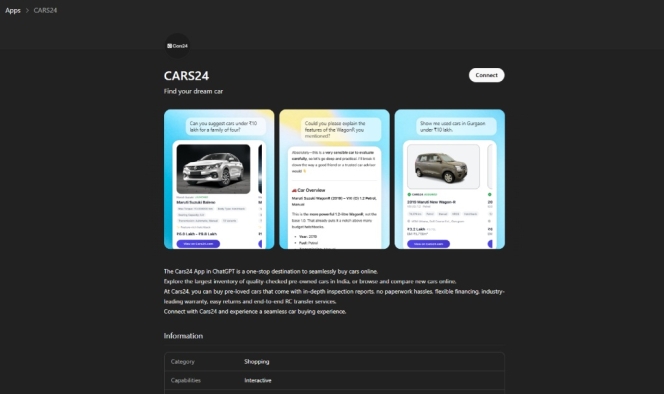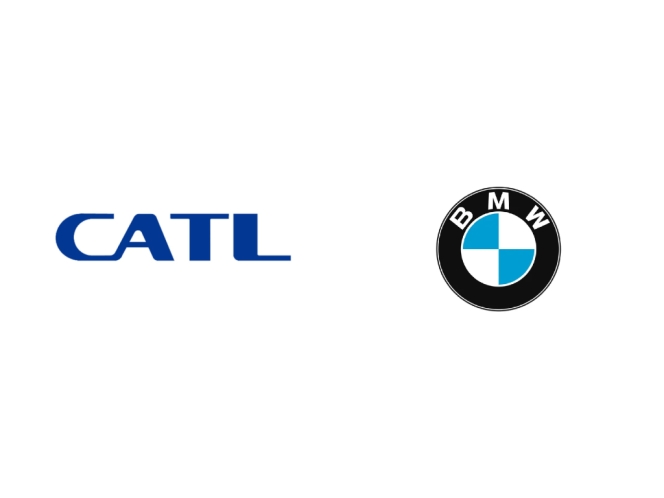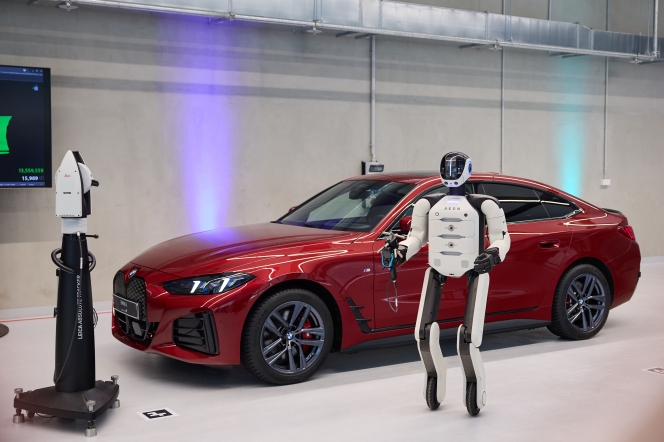Modular Automotive Architectures Are Flavours Of The Day
- By Bhushan Mhapralkar
- August 31, 2023

Factors such as ‘time-to-market’, regulations and costs are tilting the tables in the direction of modular vehicle architecture. This includes the design and assembly of all sub-systems of a vehicle in a modular manner. This also includes design standardisation and that of the production of auto parts in the form of modules.
The advantage of modular vehicle architecture can be clearly seen at the final 'assembly' stage were numerous variants (read as trims) can be positioned seamlessly and without bringing an entire operation to the halt for the want of a module, part of an assembly tool.
While the first instance of the employment of modular vehicle architecture in India may be hard to pin point, it was Ashok Leyland that announced the launch of a modular architecture in the form of the medium and heavy-duty AVTR truck platform as the BS VI emission norms came into effect in 2020.
The move reminded of the comprehensive modular architecture approach of Swedish truck maker Scania. The kind of modularity Scania built into its trucks was such that its customers could choose from a wide range of aggregates such as engines, transmissions, chassis, cabin and more to build a truck that would best address their application requirements.
Unlike the Scania’s approach to modularity, Ashok Leyland chose to offer its truck buyers the choice of engines, transmissions, suspensions, cabins and superstructure so that they could build a vehicle that met their business needs.
One of the key reasons why Ashok Leyland chose to go down the modular architecture route was the need to cut down on components such as the exhaust parts. There would have been parts that the company would have to produce in many numbers and types to address the customer requirements in the BS VI era had it not taken to the modular approach.
Not only did the AVTR modular architecture helped streamline the supply chain and control the costs better, it made sure the buyer of an Ashok Leyland medium or heavy-duty truck could choose from more than 600,000 unique combinations.
Like Ashok Leyland, Tata Motors has also been quite active in design and development of modular architectures. It developed the modular truck architecture in the form of the Prima many years ago along with its Korean Daewoo commercial vehicle arm. Not limiting itself to the Prima, the company developed modular architectures in the form of the Signa and Ultra.
It was the modular approach that led to the creation of some brilliant models such at the Signa 3118 and the Ultra 3118.
On the passenger vehicle side, the ‘ALFA’ modular architecture is being put to good use by Tata Motors in reducing the time to market and in controlling the costs as it competes with some of the most agile global passenger vehicle manufacturers in its home market as well as other markets in the world.
The ‘ALFA’ modular vehicle architecture is currently supporting the Altroz and Punch. It is also the basis for the electric Punch that is expected to be launched soon in India.
Allowing a differentiated design approach and subsequently multiple body styles to meet the evolving aspirations of customers in the automotive market, the ‘ALFA modular architecture – termed as ‘Agile Light Flexible Advanced’ and basis for an exciting e 45X concept – is playing a crucial role in meeting the high-volume demand for an entire portfolio of cars at Tata Motors as of now.
The beauty of the ‘ALFA’ architecture is such that it could be used to create diverse vehicles with distinct body styles with a variety of powertrains (petrol, diesel, CNG and even electric), transmissions, drivelines, suspensions etc, mentioned a source. A combination of body styles, hardware and software could be deployed to offer the necessary attributes, he added.
Pointing at the recent introduction of Punch CNG with twin-cylinder CNG technology, he informed that the ‘ALFA’ modular architecture is helping to expand the scope of twin-cylinder CNC tech as much.
The differentiating factor of the technology is that it does not eat into the vehicle storage space. The vehicle body can receive necessary reinforcements to bear the additional weight of the cylinders. In the CNG Punch, the suspension too has been suitably strengthened to handle the additional weight.
Observing that the CNG Punch is just one part, the source said that the electric Punch would mean that the ‘ALFA’ modular vehicle architecture has truly come to age. Claimed to be undergoing advanced testing and validation, the electric Punch would further enhance Tata Motors’ lead in the electric passenger vehicle space. It is expected to be introduced by the end of this year or early next year.
The ambitions that Tata Motors has regarding its EV portfolio could be derived from the fact that on 29 August 2023 it announced a new brand identity TATA.ev for its EV business. It is aligned with Tata Motors' commitment towards sustainability and innovation.
EVs influence modular vehicle architectures
EVs are turning to be a big factor for the creation of modular platforms lately as they promise less complexities pertaining to platform engineering, keeping them to the bare minimum. Modular electric vehicle architectures are also enabling the development of core platforms with standardised design and production of auto parts in the form of modules and a streamlined as well as compact final 'assembly' as per the positioning of models.
The R&D and production costs, shortening the development cycle of new models, facilitating the unification of quality standards and improving the overall strength of products, modular electric vehicle architectures are enabling unique ‘oil-to-electricity’ transformations as well.
Dedicated modular electric vehicle architectures are enabling clever integration (read as badge engineering) across brands and as a part of the new cooperation strategies. With software defined vehicles the order of the day, electric vehicles especially, the tilt towards modular vehicle architecture is proving to be beneficial in terms of offering a differentiated user experience, to keep control over the supply chain and to keep control over the costs and to test and validate.
(Image for representation purpose only)
Cars24 And OpenAI Partner To Integrate AI into Automotive Commerce
- By MT Bureau
- March 02, 2026

Cars24 has announced a strategic partnership with OpenAI to deploy artificial intelligence (AI) models and agents across its business operations. The collaboration focuses on embedding AI into vehicle discovery, sales, financing and post-purchase engagement across all markets where the company operates.
Unlike traditional pilot programmes, the initiative involves the integration of OpenAI’s technology into production environments to manage high-volume workflows. The partnership aims to transition the platform from manual automation to systems that assist in decision-making and data retrieval.
Cars24 has already deployed OpenAI’s Enterprise APIs across several internal and customer-facing functions. According to company data, the integration has resulted in a 50 percent increase in support resolution through assisted troubleshooting and an 80 percent reduction in turnaround time for service workflows.
Current deployment statistics include:
- Customer Outreach: AI agents now manage 20 percent of outbound conversations.
- Internal Adoption: 85 percent daily active usage of ChatGPT Enterprise among the central workforce.
- Functionality: Teams utilise the tools for data analysis, code development, and the summarisation of operational cases.
- Accessibility: The Cars24 application is now available on the ChatGPT Store for conversational vehicle discovery.
The partnership is designed to reduce dependencies on manual processes in automotive transactions. By embedding models into core workflows, the company intends to shorten decision cycles for buyers and sellers. Future phases of the rollout will include expanding these AI experiences to additional languages and product lines.
Vikram Chopra, CEO and Founder, Cars24, said, “Automotive commerce is operationally heavy by nature with multiple checkpoints, fragmented information and high-consideration decisions. Over time, we’ve realised that incremental improvements aren’t enough; the system itself needs to become more intelligent. Our collaboration with OpenAI is a step in that direction. By embedding AI into core workflows rather than layering it on top, we can reduce manual dependencies, improve consistency and shorten decision cycles. We don’t see this as a short-term advantage, but as foundational infrastructure that will compound in efficiency and trust over the years.”
- Tata Technologies
- WITTENSTEIN High Integrity Systems
- WHIS
- Andrew Longhurst
- Software Defined Vehicle
- SDV
- Nachiket Paranjpe
Tata Technologies Partners WHIS To Advance SDV Development
- By MT Bureau
- March 02, 2026

Tata Technologies has announced a partnership with WITTENSTEIN High Integrity Systems (WHIS) to accelerate the development of Software-Defined Vehicles (SDVs). The collaboration involves integrating WHIS’s SAFE RTOS into Tata Technologies’ automotive software stack.
The integration is designed to assist original equipment manufacturers (OEMs) and Tier 1 suppliers in meeting functional safety standards, such as ISO 26262. The partnership focuses on the transition towards connected, autonomous, and electrified mobility by providing safety-certified architectures for complex vehicle ecosystems.
SAFE RTOS provides real-time performance and reliability, serving as a component within the Tata Technologies SDV platform. This allows for the development of software architectures that support the increasing centrality of software in vehicle design.
The partnership combines Tata Technologies' experience in automotive software with WHIS's embedded software solutions to address requirements for scalable and certified systems.
Andrew Longhurst, Managing Director, WITTENSTEIN High Integrity Systems, said, “Software is at the heart of the automotive industry’s evolution. Our partnership with Tata Technologies ensures that OEMs and Tier 1 suppliers can leverage SAFE RTOS to achieve the highest levels of safety and performance in their software-defined vehicle architectures.”
Nachiket Paranjpe, President – Automotive Sales, Tata Technologies, added, “By combining Tata Technologies’ expertise in automotive software development with WHIS’s proven safety solutions, we are empowering our customers to accelerate SDV adoption and deliver cutting-edge mobility experiences.”
CATL And BMW Sign Agreement On Battery Passport And Decarbonisation
- By MT Bureau
- March 01, 2026

CATL and the BMW Group have signed a Memorandum of Understanding (MoU) to expand cooperation on battery supply chain data exchange and decarbonisation. The agreement was finalised in Beijing during a visit by a German delegation including Chancellor Friedrich Merz.
The partnership focuses on pilot projects for cross-border data transfer under the Battery Passport framework. The companies will collaborate on carbon accounting methodologies and tools to calculate the carbon footprints of power batteries.
The initiative utilises Catena-X, a standardised automotive data ecosystem, to align technical standards and policy frameworks. By testing Battery Passport applications, CATL and BMW aim to meet China-EU regulatory requirements and establish global data standards for the battery industry.
The cooperation is intended to improve digital management and ensure compliance with EU market access regulations regarding green product competitiveness.
The strategic relationship between CATL and BMW began in 2012. Previous collaborations have covered battery production, research and development and supply chain sustainability. This MoU shifts the partnership from product-level cooperation to institutional coordination for electric mobility.
CATL stated its intention to continue cooperation with international partners to use technology for the global energy transition and the sustainability of the automotive sector.
BMW Group bringing Physical AI And Humanoid Robots To Europe
- By MT Bureau
- February 28, 2026

The BMW Group is accelerating the digital transformation of its manufacturing operations by embedding artificial intelligence deeply into physical processes. A central focus of this strategy is Physical AI, a concept that unites digital intelligence with machinery and robotics. This integration allows systems like humanoid robots to function effectively within live production environments. For the first time, this approach is being introduced in Europe through a pilot project at the company’s Leipzig plant, where humanoid robots will be tested in the assembly of high-voltage batteries and component manufacturing. This initiative builds on a previous deployment at the Spartanburg plant in United States, where valuable experience was gained and is now being used to refine and scale the technology.
Artificial intelligence is already embedded throughout the BMW production system, underpinning functions such as digital twins, AI-supported quality assurance and autonomous transport in intralogistics. A unified data architecture serves as the foundation for this intelligence, enabling real-time access to consistent and standardised information across all manufacturing locations. This infrastructure supports the deployment of digital AI agents capable of autonomous decision-making in complex environments. When these agents are paired with robotic systems, they give rise to Physical AI, which represents a significant evolution in production technology.
The company views humanoid robotics as a strategic addition to its automation portfolio. These robots are particularly suited to tasks that are repetitive, physically strenuous or present safety risks. By deploying them in such roles, the company aims to reduce physical strain on employees and enhance workplace conditions. To drive this forward, a Center of Competence for Physical AI in Production has been established to consolidate expertise and facilitate knowledge sharing across the organisation.
A structured process governs the evaluation of potential technology partners. Candidates are assessed against criteria related to maturity and industrial applicability, followed by laboratory testing using real production scenarios. Successful tests lead to limited deployments under actual factory conditions before advancing to full pilot phases. This methodology ensures that only thoroughly vetted solutions are integrated into series production.
The Leipzig pilot is being conducted in collaboration with Hexagon, a longstanding partner specialising in sensor technology and software. Following theoretical and laboratory evaluations, an initial deployment of Hexagon’s humanoid robot, AEON, took place at the plant in December 2025. A second test phase is scheduled for April 2026, with the full pilot set to begin in the summer of that year. The robot’s human-like design allows for the attachment of various tools and grippers, making it adaptable for multiple tasks in battery assembly and parts manufacturing.
Earlier work at the Spartanburg plant provided critical insights into the practical application of humanoid robotics. In partnership with Figure AI, the robot Figure 02 was deployed in body shop operations, where it handled the precise placement of sheet metal parts for welding. Over 10 months, the robot supported the production of more than 30,000 vehicles, operating in 10-hour shifts and handling over 90,000 components. The pilot demonstrated that humanoid robots could perform high-precision tasks reliably and safely in a live production setting. It also highlighted the importance of early collaboration with teams responsible for IT infrastructure, safety and logistics. Seamless integration into the existing automation ecosystem was achieved through standardised interfaces, and employee reception was notably positive, aided by transparent communication from the outset.
The success of these initial deployments has paved the way for further collaboration. BMW and Figure are currently exploring additional applications for the next-generation Figure 03 robot, continuing to build on the foundation established in both United States and Europe.
Milan Nedeljković, Member of the Board of Management of BMW AG, Production, said, “Digitalisation improves the competitiveness of our production – here in Europe and worldwide. The symbiosis of engineering expertise and artificial intelligence opens up entirely new possibilities in production,”.
Michael Nikolaides, Senior Vice President Production Network, Supply Chain Management at BMW Group, said, “Our aim is to be a technology leader and to integrate new technologies into production at an early stage. Pilot projects help us to test and further develop the use of Physical AI – that is, AI‑enabled robots capable of learning – under real-world industrial conditions. The successful first deployment of humanoid robots at our BMW Group plant in Spartanburg in the USA proves that a humanoid robot can function not only under controlled laboratory conditions but also in an existing automotive manufacturing environment.”
Michael Ströbel, Head of Process Management and Digitalisation, Order to Delivery at BMW Group, said, “We are delighted to deploy a humanoid robot for the first time in a pilot project at a plant in Germany. Following evaluation by our Center of Competence for Physical AI in Production, tests were carried out in the laboratory and at Plant Leipzig at the end of last year. This year, our focus is on step‑by‑step integration into our production system to explore a wide range of applications. The emphasis is on researching multifunctional use of the robot in various production areas such as battery manufacturing for energy modules and component production for exterior parts. With Hexagon, we have found a proven long‑standing partner with a highly innovative approach to humanoid robotics for this project.”
Felix Haeckel, Team Lead CoC Physical AI for Production, said, “At our new Center of Competence for Physical AI in Production, we are pooling our expertise to make knowledge on AI and robotics widely usable within the company. In recent years, we have built up an international team of experts that, in addition to in‑house research and programming, is dedicated to the gradual integration of AI into the existing production system. At the same time, our team in Munich is driving its own robotics research to set up, support and further develop pilot projects in the field of Physical AI at our plants.”
Arnaud Robert, President of Hexagon Robotics, said, “We are very pleased to be working with the BMW Group to advance the use of humanoid robots in real‑world environments.”






Comments (0)
ADD COMMENT